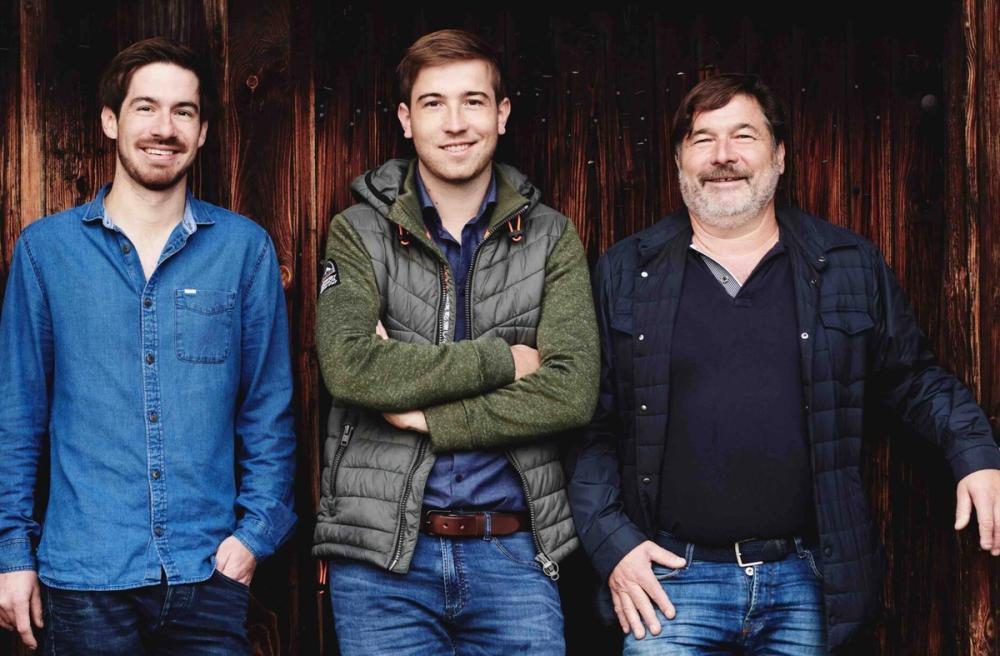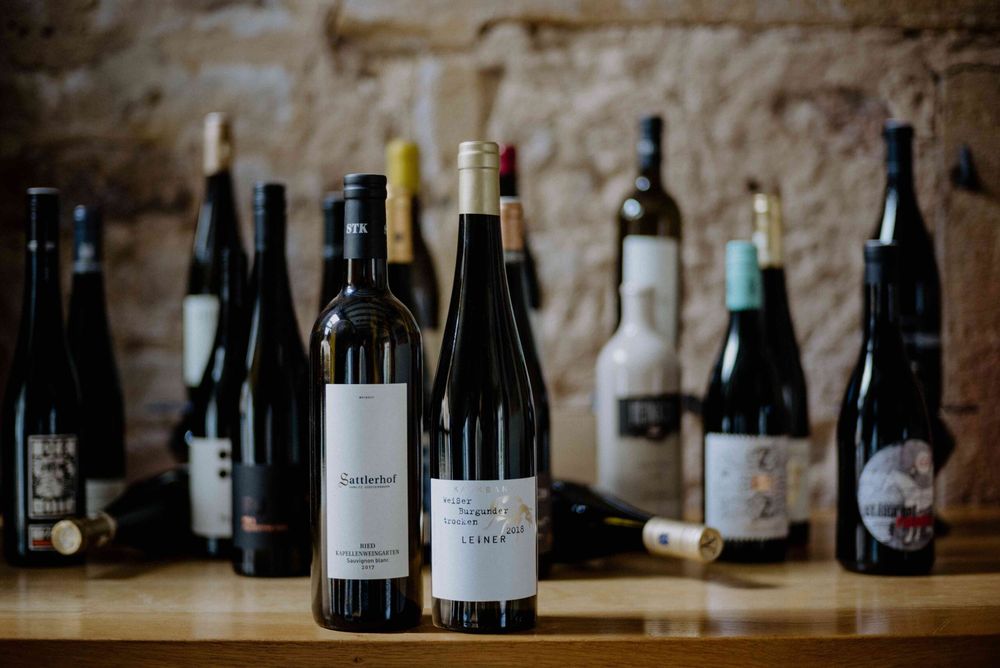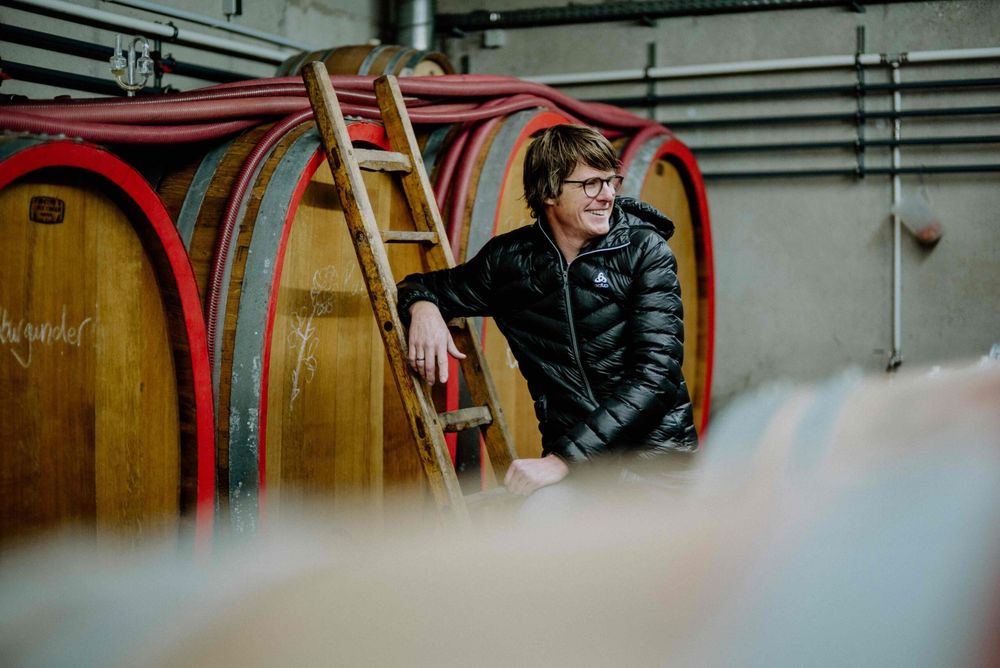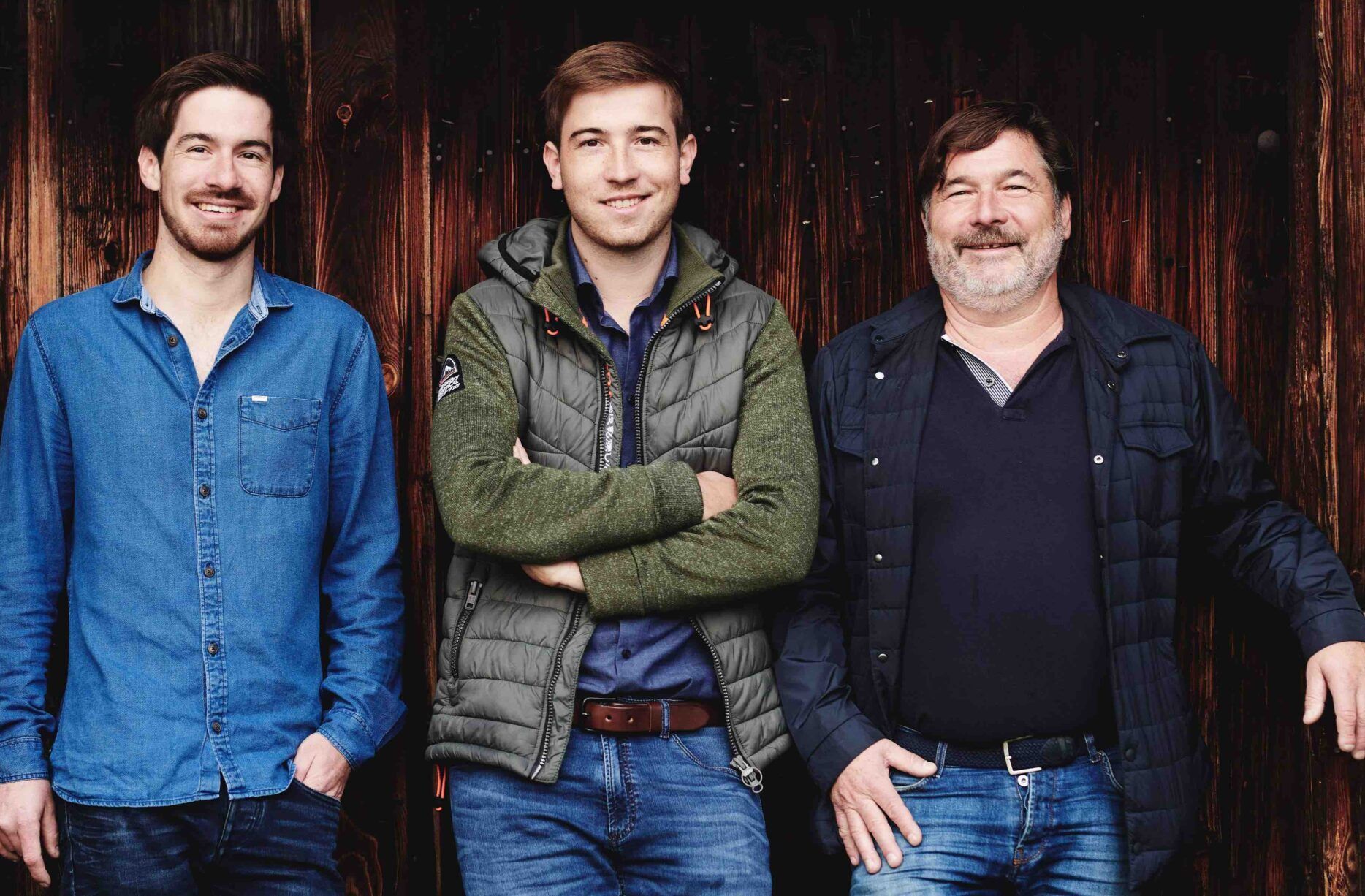New respekt-BIODYN members, Sattlerhof and Leiner, already have impressive track records – Sven Leiner was shortlisted last year for best German winemaker and Sattlerhof was voted one of the top 100 wineries in the world.
In order to celebrate the addition of its two new members, Sattlerhof and Leiner, Austrian-based biodynamic association respekt-BIODYN held an international press conference and tasting to lay bare the group’s aims and to taste four wines which are all of a style that the group is aiming to achieve.
Weingut Sattlerhof and Leiner, Austrian and German respectively, have now joined 23 other wineries in a group that was founded by 12 winemakers in 2007 in a common pursuit of individual quality in wine, and a way of sharing good practice in biodynamic farming. The group grew year by year until it their first respekt-certified vintage was presented at VieVinum, Vienna’s largest wine trade fair, at the Hofburg in 2012.
“Being green is very fashionable of course,” says winemaker and founding respekt-BIODYN member, Fred Loimer, “but we are only interested in what happens when you work differently in the vineyard; putting ‘organic’ or ‘biodynamic’ was not the main driver.”
“We also wanted to stay away from the esoteric, or cosmic, side of biodynamics and concentrate on the practice of farming – how do you reach character and individuality in your wine? Where do you have your vineyard and what is the culture of the country? for example.”

New kids on the block: Andi, Alex and Willi Sattler (l-r) from new member Weingut Sattlerhof. © Michael Königshofer
respekt-BIODYN is based in Vienna and 17 of the association’s 25 members are Austrian, accounting for 10% (630 hectares) of Austria’s total amount of organic vineyards. The association also has seven German wineries as members (farming 145 hectares) and one member from Sud Tyrol; they say they are open to new members but that is limited by the common language of the association being German. The father of Biodynamics, Rudolf Steiner, who was Austrian is not the direct reason for respekt-BIODYN having this Austrian bias.
“We want to grow a little bit – we don’t want to be the largest group – and we can’t be truly international because our common language is German,” says respect-BIODYN’s chairman Michael Goëss-Enzenberg.
The group does share their experiences of creating diversity in the vineyard through keeping animals, and respecting the soil life – green cover, composting and so on. They also advise each other on individual export markets and which importers work well with their wines “And who doesn’t pay their bills,” Goëss-Enzenberg adds with a grin.
So how were the wines of Sattlerhof and Leiner tasting like?
Each winery brought along two wines each and, if these are indicative of the group’s manifesto, then the emphasis is very much on the vineyard itself and less so on the craft of winemaking. Both Sven Leiner (who was shortlisted last year for best German winemaker by Falstaff) and Willi Sattler (whose winery was voted one of the top 100 wineries in the world) prefer hands-off winemaking.

© Fabian Pellegrini
Sattlerhof is a 35-hectare winery in Gamlitz, Styria that has been certified organic since 2016. Its key old vines grow on quartz and limestone, on predominantly steep slopes. Willi Sattler showed two wines – a herbal Sauvignon Blanc and a TBA made out of the same grape, both available through Liberty Wines.
Gamlitz Sauvignon Blanc, 2018, Sattlerhof, Südsteiermark, Austria
Very fine, light Sauvignon Blanc from the most southerly winemaking region of Austria made with great finesse, elegance and structure. It packs a lot of punch for a village wine.
This is Sattlerhof’s attempt to take village wine to the next level – including fruit from its own grand cru vineyard, where the soils are calcareous as well as quartz. In order to give it a dense structure and a lot of depth, there is a long 12-16 hour maceration, then one and a half years in steel without malolactic fermentation, followed by a further year in bottle.
To look at the wine is limpid; the nose is complex: herbals notes, green citrus; the palate is lightweight, with zippy acidity and fruit – citron pressé with a hint of grapefruit – lots of life to it, very fresh, great balance and light on its feet, with a mineral quality on the finish. Like a cross between a well made herbal New Zealand SB and one from Alto Adige in profile. Calms down after some time in the glass. 12.5% ABV.
Kranachberg Trockenbeerenauslese Sauvignon Blanc, 2013, Sattlerhof, Südsteiermark, Austria
From Kranachberg , which is Sattlerhof’s top vineyard, 450m high and benefitting from cool air from the Alps, which brings a lot of freshness to the fruit here. A TBA is only attempted after an Indian summer when the fruit is left to hang for an additional three weeks after harvest. The estate attempts to keep a consistency between the grapes that are picked and the finished wine and this they have succeeded in doing – the wine is like dried raisins that have been squeezed into your mouth.
Medium yellow; delicious, inviting nose and palate that is awash with layers of fruit – raisins, strawberry jam, stone fruit, pineapple, tinned apricot; the palate is rich and unctuous with the freshness just about holding it all together. Skip dessert just have a glass of this. Would make the perfect recovery tipple after a mammoth cycle ride 😉 200 gms residual sugar per litre, 9.5% ABV.
And so onto Leiner…
The 17-hectare Leiner estate is located at the foot of the Kleine Kalmit nature reserve in the Southern Palatinate region of the Pfälz. The Leiner family is an organics pioneer in the region having been practising organic viticulture there for about 20 years; the winery was founded in 1974, certified organic in 2005, and Demeter-certified in 2011. The winery is well known for its precise Rieslings and Pinot varieties grown on barren limestone and clay soils.

Sven Leiner
Kalkbruch Weisser Burgunder trocken, 2019, Leiner, Pfälz, Germany
Complex, dry Weiser Burgunder which has good balance between lusciousness, ample mouthfeel and a core of crushed-rock acidity.
The wine is made from fruit grown on the highest West and South-facing vineyards in the region; after fermentation it has long contact with the barrels and goes through full malolactic fermentation. The wine is racked before bottling but not filtered “to hold all the aromatics.”
To look at the wine is limpid with a green-yellow hue and slight lack of clarity; the nose is complex, ripe and fruity, with notes of pear cake, honeysuckle, a twist of citrus, an intensity and tannic structure coming from a long time on the yeast; medium weight on the palate with an interesting balance between warm and creamy mouthfeel with a fine spine of acidity, minerality and tingly citrus.
Kalkbank Spätburgunder, 2018, Leiner, Pfälz, Germany
Textbook, elegant German Pinot Noir with immense purity and finesse.
This is a single vineyard wine from Leiner, using a selection of clones and, since 2000, increasingly more Burgundian clones. The decision to use 500-litre barrels and not barriques is a good one because the wine has structure but very little wood influence, the 30% whole bunch gives it a slight crispiness and leads to a fine balance.
Light ruby, so light in fact that you could read a book through it; the wine has a softly-spiced, pretty nose with cranberry notes, red berries and a touch of allspice; the palate is light to medium weight, so approachable, fine and pure that you could so easily just put a straw in the bottle. (Leiner wines are available in the UK through Rebellious Goods)
The full list of respect-BIODYN members is: Paul Achs, Judith Beck, Busch, Christmann, Feiler-Artinger, Fritsch, Martin & Georg Fußer, Manincor, Gsellmann, Hajszan Neumann, Gernot & Heike Heinrich, Hirsch, Leiner, Loimer, Anita & Hans Nittnaus, Ott, Gerhard & Brigitte Pittnauer, Claus Preisinger, Sattlerhof, Ökonomierat Rebholz, Dr. Wehrheim, Weninger, Wieninger, Wittmann, and Herbert Zillinger.






























